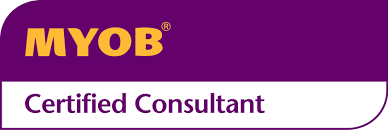Table of Content
Share This Article
- Published: Aug 28, 2025
- Last Updated: Feb 10, 2026
- 🔊 Listen
Quick Reads
- Accounting automation frees your team from tedious data entry, allowing them to focus on strategic, high-value tasks.
- Automation boosts accuracy and speed in financial processes, reducing errors and providing real-time financial insights.
- Automated systems can schedule financial reports and apply tax rules, which simplifies compliance and keeps stakeholders informed.
- Automated reminders for overdue invoices help businesses improve cash flow without manual effort.
- Outsourced accounting experts provide critical human oversight and strategic analysis, transforming automated data into actionable business intelligence.

Outsourcing Done Right!
Get Streamlined Processes, Expert Support, and Financial Clarity.
By combining automation with human expertise, every sector, especially accounting, can benefit immensely. The use of accounting software, including cloud-based platforms like QuickBooks, NetSuite, Xero, and MS Dynamics 365, is on the rise, providing significant advantages to businesses worldwide. Accounting automation reduces errors and inaccuracies while speeding up processes, making it a valuable asset for businesses of all sizes including small, medium, and large. This post will explore the core accounting functions that can be automated and demonstrate how outsourcing can provide the necessary human proficiency alongside automated accounting.
Core Accounting Tasks That Demand Automation
Accounting automation transforms daily accounting routines by integrating software tools such as QuickBooks, NetSuite, and Xero that manage accounting tasks. Through accounting automation, you can replace manual tasks such as processing vendor invoices, sending invoice reminders, expense management, posting recurring transactions, bank reconciliation, financial reporting, payroll, and tax reports. Let us break down how automation can help your business in handling core accounting tasks and save time:
Processing of Vendor Invoices
Processing vendor invoices involves invoice receipt, approval workflow, matching invoices to purchase orders, and posting payments. Automating this task streamlines the entire accounts payable workflow. Accounting automation software can capture and digitize invoices, extract key data like amounts and vendor details, and post them once verified. This speeds up processing, minimizes errors, and creates clear audit trails, eliminating the need for time-consuming manual input and paperwork.
Sending Reminder to Overdue Customer Invoices
For overdue customer invoices, accounting automation tools identify past-due accounts, compose reminder emails, and schedule follow-up notifications based on payment terms. This consistent follow-up improves cash flow by reducing payment delays while cutting down the manual effort required from finance teams, ensuring outstanding balances are addressed promptly.
Auto Posting of Expenses
Expense management is simplified through accounting automation software handles employee expense submissions, automatically codes them to the correct accounts, and posts them to the general ledger in real time. This process captures receipts, verifies compliance with company policies, and accurately records expenses without manual work, which speeds up reporting and improves accuracy.
Posting of Recurring Transactions
Recurring transactions, such as rent, leases, or subscriptions, are programmed in accounting automation systems for automatic periodic posting. Schedules are set for frequency, amounts, and account categories, so transactions are posted on time every cycle. This removes repetitive manual entries, ensuring consistent and timely postings that reduce risks of missed or late transactions.
Auto Recording of Payroll
Payroll automation captures salary data, applies taxes and benefits, runs calculations, and posts results directly to financial records. This minimizes risk and keeps payroll accurate while ensuring regulatory compliance.
For example, in the USA, systems automatically handle Federal Insurance Contributions Act (FICA) taxes and state-specific withholdings. In the UK, they manage Pay As You Earn (PAYE) tax and National Insurance Contributions (NIC). This ensures accurate payments and up-to-date financial records and supports compliance effortlessly.
Automating Bank Reconciliation
Through accounting automation, bank reconciliation is accelerated by importing statements automatically and matching transactions with internal records. Discrepancies are flagged for review, simplifying the reconciliation process, reducing errors, and enabling quicker financial closing cycles without tedious manual comparisons. Bank reconciliation becomes faster with automation that imports statements and matches them to internal records automatically.
Scheduling of Financial Reports
Accounting automation empowers users to configure financial report templates and schedule their delivery at set intervals. As new transactions are recorded, reports populate instantly with the latest data, ready for review by management or auditors. Accounting automation eliminates the need for manual report compilation and keeps stakeholders updated. A system can be set up to generate and distribute key financial reports, like profit and loss statements or balance sheets, on a daily, weekly, or monthly schedule.
Auto Population of Tax Reports
Tax reporting automation pulls accounting data, applies country- or region-specific tax rules, and fills out local tax forms ready for submission. Depending on the country, accounting automation tools can apply different sales tax, VAT, GST, or corporate tax laws and generate compliant reports accordingly.
Accounting automation also extracts relevant financial data and populates tax forms according to country-specific regulations. During tax season, this data can be used to auto-populate forms and reports, making the final preparation process faster and far less prone to errors.

How Outsourced Accounting Experts Facilitate Decision Making & Automation
Automating key financial tasks with accounting automation empowers businesses to focus on strategy rather than repetitive accounting tasks. With accounting outsourcing services, this advantage is magnified. They bring a professional layer to automated processes, reviewing flagged discrepancies, analyzing financial data for trends, and providing strategic insights that go beyond simple data processing. This blend of automated efficiency and human oversight translates into highly accurate and actionable financial intelligence, enabling smarter, data-driven decisions.
If you are looking to level up your financial operations, partner with Whiz Consulting. With over a decade of experience and a team of 150+ accountants trained in the latest accounting automation technologies, we provide the perfect blend of expertise and efficiency to streamline your business finances. Let us handle your accounting and bookkeeping tasks with upgraded tools and technologies to free up your precious time for building strategies. Contact us now to begin your journey toward smarter, more effective accounting.

Get customized plan that supports your growth

Thousands of business owners trust Whiz to manage their account
Let us take care of your books and make this financial year a good one.
This website uses cookies to improve your experience. You can accept all or reject non-essential cookies.








